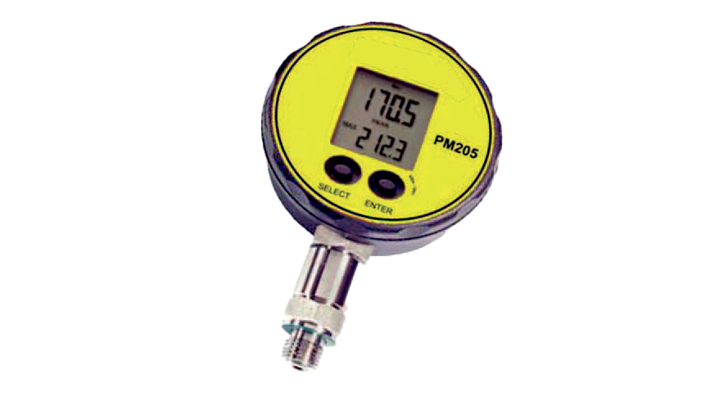Sensors and instrumentation play a critical role in the operation of a sea going vessel, which means you need to be able to trust the readings they provide. Buying the best sensor is not enough, you will need to maintain it as the readings will drift over time. To ensure sensors in operation are trustworthy, they will need adjustment from time to time, as readings can drift. Enabling the crew to perform on-site calibration it is often possible to maintain valid certificates which ensures the accuracy of equipment such as manometers, temperature sensors and pressure switches is kept.
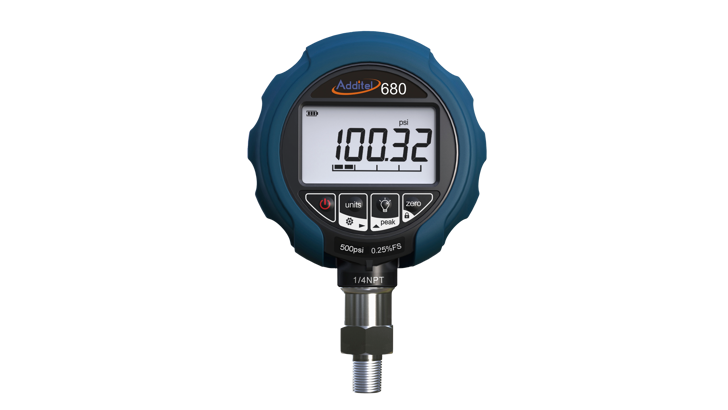
Pressure calibrators
Additel ADT680 Digital Pressure Gauge
Additel ADT680 is an advanced digital pressure reference, with ADT680W having additional data logging and wireless communication, provides new possibilities for the use and execution of your pressure measurements. The Additel ADT680 / ADT680W series of digital pressure references covers the pressure range from -1...4200 bar(g).
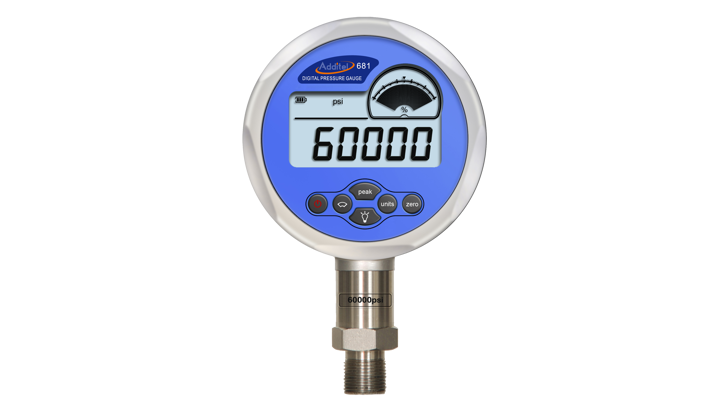
Pressure calibrators
Additel ADT681 Digital Pressure Gauge
Additel ADT681 / ADT681IS is an advanced digital pressure gauge that makes it possible for you to perform pressure measurements and calibration tasks in demanding environments. You can choose Additel ADT681IS for tasks in environments that require intrinsically safe equipment. Additel ADT681IS is also IP67 rated, which means that the equipment is suitable for use in dusty and wet environments. Additel ADT681 series of digital pressure gauges that cover the pressure range from ± 2.5 mbar to 4200 bar, which makes it easy for you to find a unit that matches your accuracy and range requirements.
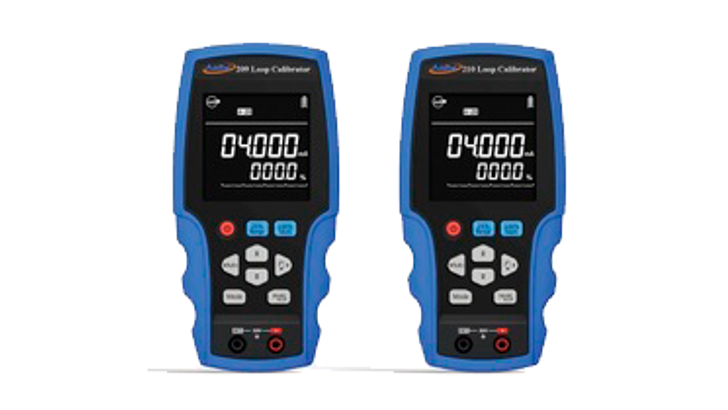
Calibration & analysis
Additel ADT209/210 loop calibrator
Additel ADT 209/210 loop calibrator series combine ease of use and funtionality. They are the ideal tool to troubleshoot your process loop.
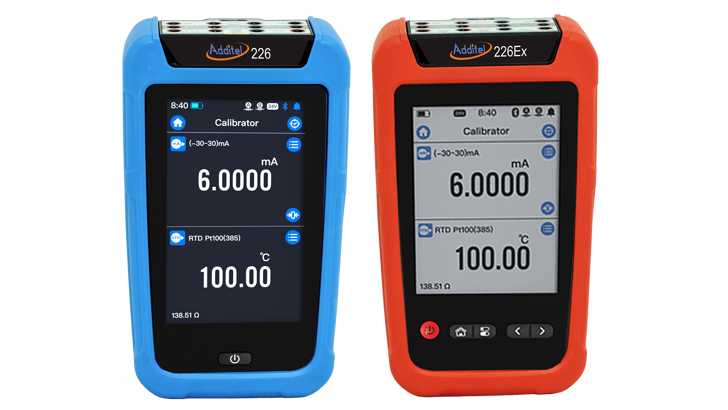
Calibration & analysis
Additel ADT226/227 (Ex) Multifunction calibrator
Additel's portable multifunction process calibrator takes functionality and accuracy to a whole new level. In addition, it has a design with intuitive and easily operated touchscreen.
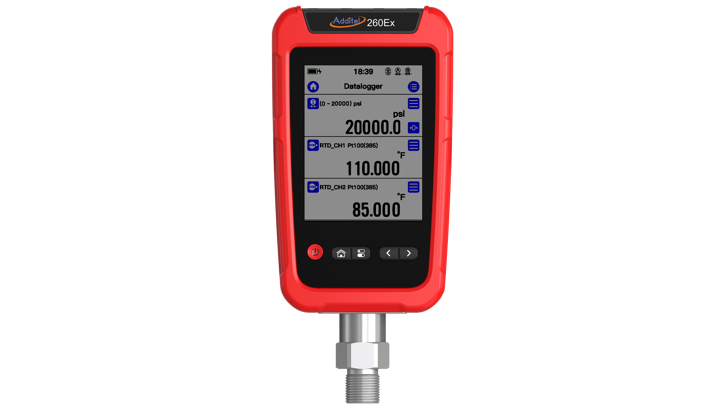
Calibration & analysis
ADT260EX intrinsically safe handheld multichannel reference recorder
Additels 260Ex is an intrinsically safe handheld multichannel reference recorder with 8 different channel configurations. Measure and collect data for pressure, temperature (RTD probes available), barometric pressure and electrical measurement - all in one portable device.
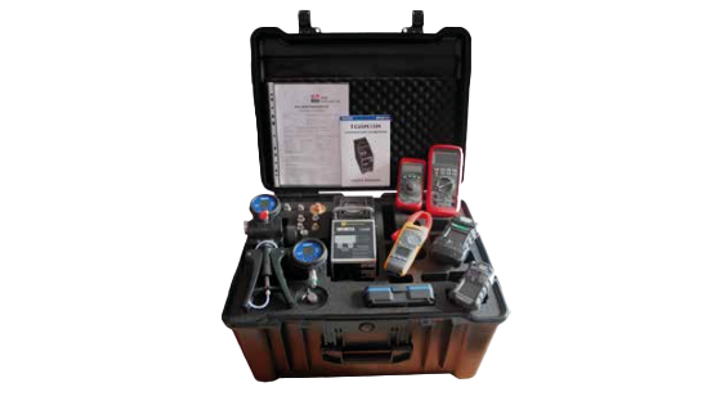
Calibration kit
IKM Instrutek Tankers/FPSO Calibration Kit
Specialized kit made for Tankers and FPSO. The kit includes temperature and pressure calibrators incl. multimeters, loop calibrators and insulation testers.
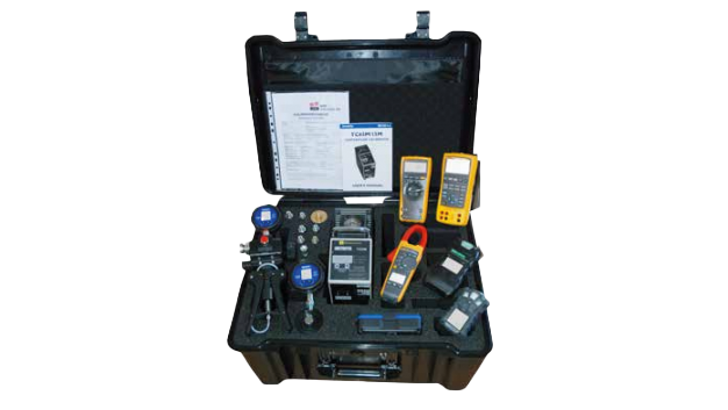
Calibration kit
IKM Instrutek PSV/AHTS/CSV Calibration Kit
Specialized kit made for supply vessels and alike. The kit includes all the necessary equipment to do your pressure, temperature and electrical calibrations on board. A long range 700 bar pump is included in this kit.
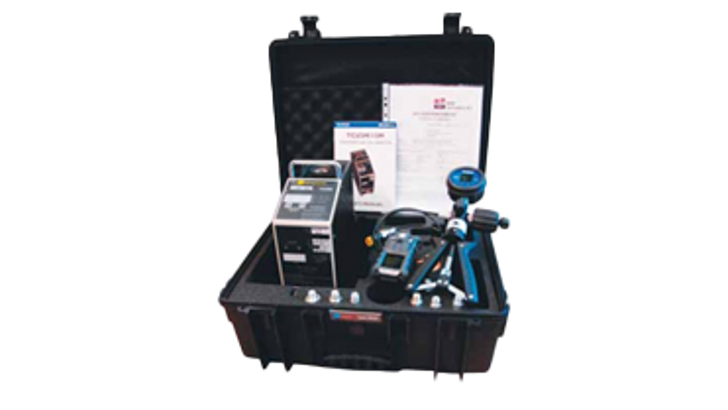
Calibration kit
IKM Instrutek Bulk/Cargo/Container Calibration Kit
The Bulk / Cargo / Container Calibration Kit has everything you need in one case. The test case comes with all the instruments you need, together with all certificates required.
No results found
Calibration
Why Is Calibration Important to Vessels in Operation?
The zero point, stability and the acccuracy of measuring devices degrade over time, from the fresh water temperature sensors to the engine and HVAC pressure transmitters. This is typically caused by wear and tear, but can also occur from electrical or mechanical shock. Depending on the type of sensor, environment and placement, it may drift rapidly or over a longer period of time. At the end of the day you have to perform your calibrations if you want to trust your instruments on board.
What Is a Calibration?
A calibration is a comparison between a known measurement (a more accurate standard) and the measurement using your instrument.
A general rule of thumb is that the standard should be ten times more accurate than your own instrument. However, accuracy ratio of 3:1 may also be used in some cases. The objective of a calibration is simply to determine the accuracy of your measuring device.
When Should You Calibrate?
Your instrument should be calibrated:
- According to recommendation of the manufacturer.
- According to class demands, IOPP certification etc.
- After any electrical or mechanical shock.
- Periodically (annually, quarterly, monthly).
Hidden costs and risks associated with un-calibrated devices could be much higher than the cost of the calibration.
